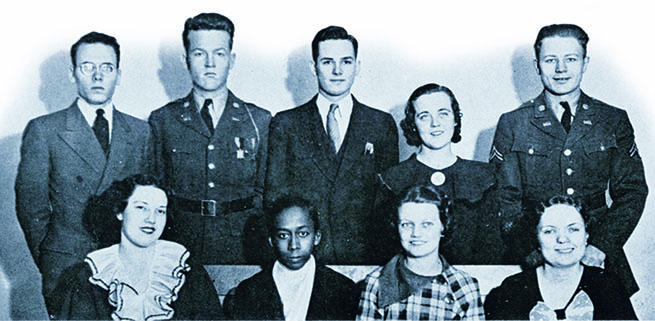
A native of Kingfisher, Okla., Erna Prather Harris (1908-1995) was one of the few African American women to attend college during the Great Depression — and she chose to attend the University of Wichita.
In 1936, Harris became the first black woman to earn a journalism degree from WU. As a student, she wrote for The Sunflower, the first African American to do so.
She was also the first African American, the first woman and the first freshman to win a journalism prize at WU. During her senior year, while she was editor, The Sunflower received the Pacemaker Award and was named “best periodical in the country” by the Collegiate Press Association.
Despite such achievements, Harris struggled to find work after graduation and decided to take matters into her own hands.
“With $20 and a lot of brass,” she published the first edition of her own newspaper, The Kansas Journal. But she was forced to shutter the Journal in 1939 after it lost advertisers because of her editorial stand against the Selective Service Act.
By 1941, Harris had moved to California, where she worked as a reporter for the Los Angeles Tribune.
She supported open immigration laws to aid Jews fleeing Hitler, and she wrote editorials opposing the wartime internment of Japanese Americans.
The FBI tapped the newspaper’s phone and opened her mail, but she had her editor’s support. In 1952, she moved to Berkeley, where she ran a print shop for years.
Ever an advocate for peace, she joined the Women’s International League for Peace and Freedom, serving as a delegate to meetings in England, the Netherlands and India.
In 1964, she traveled to Moscow as part of a diplomacy mission to build peaceful relations between American and Soviet women.
A woman with broad and eclectic interests — she once built a car from scratch — Harris enjoyed concerts and theater, maintained an identity with her African and Native American heritages, and never failed to stand up for her convictions.
She was, indeed, a true Renaissance woman.





